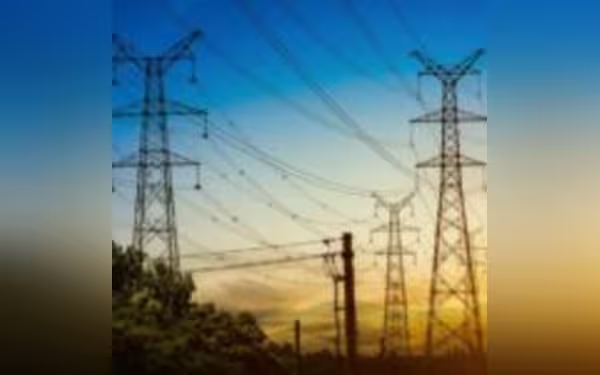Saturday, November 16, 2024 11:27 PM
Nepra Proposes Rs1.01/kWh Electricity Tariff Cut for October 2024
- Nepra considers Rs1.01/kWh tariff reduction for October.
- CPPA-G cites fuel cost changes for proposed adjustment.
- Public hearing scheduled for November 26 to discuss tariff cut.
 Image Credits: pakistantoday
Image Credits: pakistantodayNepra proposes a Rs1.01/kWh electricity tariff cut for October 2024, responding to fuel cost changes, with a public hearing on November 26.
In a significant development for electricity consumers in Pakistan, the National Electric Power Regulatory Authority (Nepra) is considering a proposal that could lead to a reduction of over Rs1 per kilowatt-hour (kWh) in electricity tariffs for October 2024. This potential decrease comes in response to a request from the Central Power Purchasing Agency-Guarantee (CPPA-G), which has cited changes in fuel costs as the primary reason for this adjustment.
The CPPA-G has suggested a reduction of Rs1.0159/kWh from the previously approved reference price of Rs10.2752/kWh. The actual fuel cost for October has been calculated at Rs9.2593/kWh, indicating a favorable shift in the pricing structure. This proposed adjustment is set to be discussed in a public hearing scheduled for November 26, where stakeholders will have the opportunity to provide their feedback.
During October, the electricity generation in Pakistan utilized a diverse mix of fuels. Hydropower emerged as the leading source, contributing 31.06% of the total output. Local coal followed, accounting for 14.7% at a cost of Rs11.18/kWh, while imported coal made up 8.79% at Rs16.9110/kWh. Re-gasified liquefied natural gas (RLNG) played a crucial role, providing 19.51% of the generation at Rs22.6426/kWh. Nuclear energy, known for its cost-effectiveness, contributed 14.05% at a mere Rs1.5122/kWh. Additionally, local gas-based electricity constituted 8.05% at Rs14.2504/kWh, and imported electricity from Iran formed a small part of the mix at 0.41% at Rs25.3/kWh. Interestingly, while furnace oil-based generation was minimal at 0.02%, it was the most expensive option at Rs29.14/kWh.
The overall generation cost for October, after accounting for transmission losses and sales to independent power producers (IPPs), was calculated at Rs9.2593/kWh. If Nepra approves this adjustment, it will lead to a lower tariff for consumers of the ex-Wapda distribution company, providing much-needed relief to households and businesses alike.
This proposed tariff cut is a welcome development for many consumers who have been grappling with rising electricity costs. It reflects a broader trend of adjusting energy prices in response to fluctuating fuel costs, which can significantly impact household budgets. As the public hearing approaches, it is essential for consumers to stay informed and participate in the discussion, ensuring their voices are heard in this critical matter.













